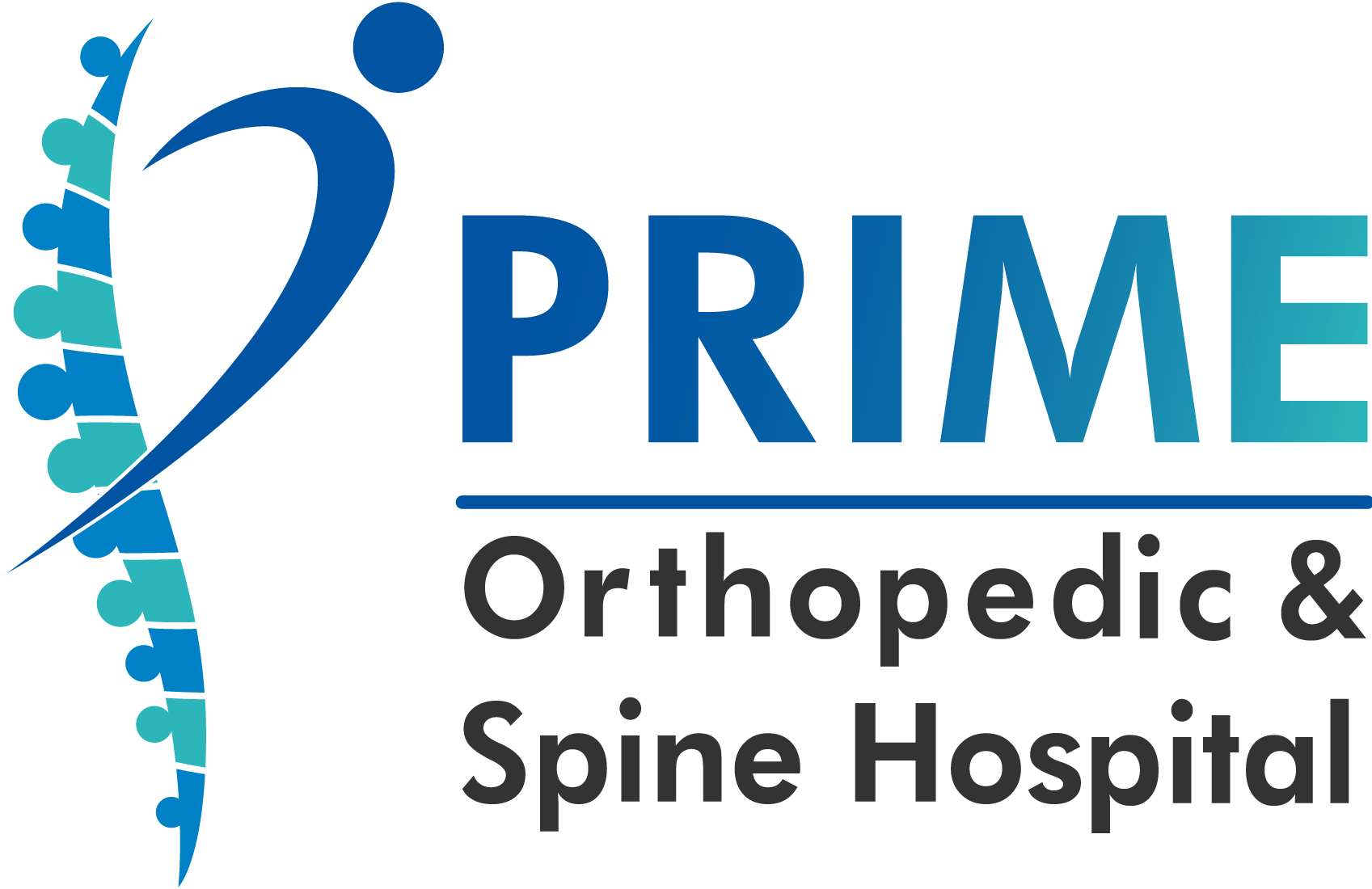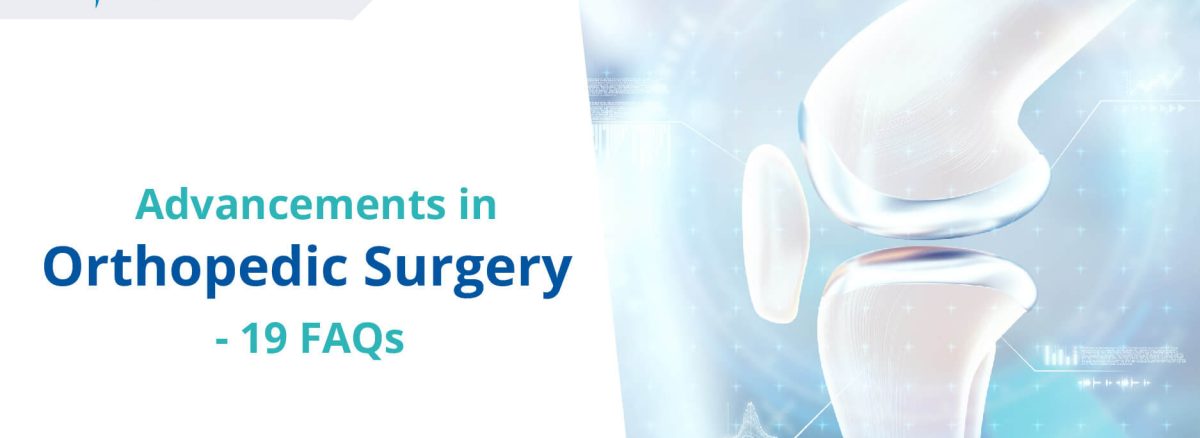Overview
As an orthopedic surgeon at Prime Orthopedic and Spine Hospital, I’ve seen that people have many questions about orthopedic surgeries. Today, via this write up I wish to clear most of your questions regarding orthopedic injuries and orthopedic surgeries.
19 Questions with Answers in Orthopedics
1. What care should I take before the joint repair operation?
It is necessary to follow the instructions given by the doctor before the surgery specifically concerning the continuance or discontinuance of certain medicines. As one of the best bone and joint hospital, we often guide our patients to stay away from NSAIDs, blood thinners, alcohol and tobacco in all forms.
In case you are diabetic then it should be under control. You should specifically intimate us about the medicines you are currently taking, allergies and about any matter that is important for us to know.
Any dental conditions need to be resolved before surgery. Because there is a possibility that it may cause bacterial infection during operation.
At home, you should arrange for the following before surgery.
- Proper bathroom and toilet accessories that will make it easy for you to access it.
- Remove rugs
- Place handrails in stairways and other frequently used places
- Always keep things required frequently, within reach.
2.What are the latest techniques for Knee replacement surgeries?
Minimally-invasive procedures:
Knee replacements are highly preferred for quick recovery. Unlike the other surgeries, it requires an incision of around 4 inches and offers many benefits like:
- Fast recovery
- Smaller incisions
- Less painful
- Less blood loss
Fast Tract Knee Replacement:
Fast Tract Knee Replacement surgeries are the latest in the field of orthopedic surgeries. Only the best joint replacement hospital offer it. It requires high-level skills on the part of the surgeon to do it.
This procedure is a culmination of surgical techniques from surgical exposure, soft-tissue balancing, pain management, controlling bleeding, wound closure and dressing materials and best hospital for spine surgery methods.
Benefits of Fast Tract Knee Replacement:
- You can go home within a few hours of surgery.
- You can climb stairs on the same day.
- You can resume your normal life faster.
- It seems just like a daycare procedure.
- It is not painful as other knee surgeries and often patients do not require a CPM machine after the operation.
- No blood loss.
- Reduce muscle and knee pain.
- Zero risk of ‘Deep vein thrombosis.
- Stitchless surgery.
3.What is the difference between partial and total knee replacement surgery?
At Prime Orthopedic Hospital, we conduct partial and total knee replacement surgeries. As the word indicates, total knee replacement indicates that the entire knee joint is replaced with a new artificial joint.
Whereas in the case of partial knee replacement, only a portion of the knee is removed and artificial parts are added.
4.What happens during the first appointment?
As the best bone hospital, whenever a patient approaches us for a spine issue we do a physical examination first to locate the problem.
After that, if required, we do an X-ray, MRI or CT scan. Depending on the problem either we try to solve it or refer it to another specialist.
5.What is total joint replacement surgery?
A joint replacement surgery that is carried on to replace the joints is called joint replacement surgery. In medical terms, this surgery is referred to as arthroplasty. At Prime Orthopedic Hospital, we conduct joint replacement surgeries for:
- Knee
- Hip
- Shoulder
- Ankle
- Elbow
- Toes
- Wrist
Generally, arthroplasty is recommended in the following cases:
- If you have joint pain that does not improve even after medicin
6.What is arthroscopic knee surgery?
Knee arthroscopy is a procedure performed to look inside the knee. In knee arthroscopy, a small incision is made and a small instrument is inserted in the knee. This instrument is called an arthroscope. Through the camera attached to the arthroscope, we can look inside the knee and identify the cause of pain.
As one of the best joint replacement hospital, we offer arthroscopic knee surgery for:
- A partial meniscectomy (removal of the meniscus), repair of a torn meniscus, or meniscus transplantation
- Reconstruction of a torn anterior cruciate ligament or posterior cruciate ligament
- Removal of inflamed synovial tissue
- Trimming or reconstruction of damaged articular cartilage
- Removal of loose fragments of bone or cartilage, like those caused by synovial chondromatosis
- Treatment of patella (kneecap) problems
- Treatment of knee sepsis (infection)
7.What is a fracture?
When the bone breaks it is regarded as a fracture. There are many types of fractures and many reasons for a fracture. Accidents, osteoporosis and calcium deficiency make you prone to fractures.
Symptoms of a broken bone include:
- intense pain in the injured area that gets worse when you move it
- numbness in the injured area
- bluish colour, swelling, or visible deformity in the injured area
- bone protruding through the skin
- heavy bleeding at the injury site
To provide first aid to the patient who has suffered from a fracture, as one of the best spine hospitals, we recommend doing the following things:
- In case of bleeding, apply pressure on the wound to stop bleeding and wrap with a clean cloth.
- Immobilie the injured area using a splint or a sling.
- Apply ice pack to the injured area with a gap of 10 minutes.
- Take the person to the bone and joint care hospital.
+
8.What are the treatments for fracture?
The treatment of a fracture depends on the type of fracture.
At our Prime Orthopedic and Spine Hospital we use the following methods to heal fractures:
- Casts or metal plates
- Usage of metal plates or screws
- External fixings
- Plaster to keep the bone in place
9.What is bone grafting surgery?
There are many reasons why bones don’t heal naturally after a fracture. In such cases as the bone hospital, we depend on bone grafting. In bone grafting surgery, a surgeon inserts a new piece of bone where healing is required. We can do it either using the bone of a cadaver donor or bones from your own body.
In the following cases, we use bone graft surgery
- If the fracture does not heal
- Diseases of bone
- Fractured bone joined improperly
- Spinal fusion surgery
10.When is hip replacement surgery needed?
Certain conditions necessitate hip replacement surgery such as:
- Osteoarthritis
- Rheumatoid arthritis
- Osteonecrosis
In case you’re not aware of your medical conditions then here are a few signs you should consider for hip replacement surgery.
- If you have chronic pain
- Inability to do routine tasks
- Stiffness in hip
- Medicines are unable to reduce the pain
- Tests reveal joint damage
11.What are minimally invasive surgeries?
Surgeries done with minimum invasion using special equipment and tiny cameras are called minimally invasive surgeries. In orthopedics, we perform invasive surgeries that help patients to heal faster.
12.What is fast-track knee replacement surgery?
Fast Tract Knee Replacement surgeries are the latest in the field of orthopedic surgeries. Only the best joint replacement hospitals offer it. It requires high-level skills on the part of the surgeon to do it.
This procedure is a culmination of surgical techniques from surgical exposure, soft-tissue balancing, pain management, controlling bleeding, wound closure and dressing materials and methods.
Benefits of Fast Tract Knee Replacement:
- You can go home within a few hours of surgery
- You can climb stairs on the same day
- You can resume your normal life faster
- It seems just like a daycare procedure
- It is not painful as other knee surgeries and often patients do not require a CPM machine after the operation.
- No blood loss
- Reduce muscle and knee pain
- Zero risk of ‘Deep vein thrombosis
- Stitchless surgery
13.What is considered to be the proper diet for bones?
Calcium is needed for bones. But bones can absorb Calcium only if you have proper levels of Vitamin D and Vitamin K. Daily exercise, and a diet composed of fruits and vegetables is essential to keep the bones healthy.
14.What are the most common orthopedic problems?
The common orthopedic injuries include:
- Arthritis
- Bursitis
- Fibromyalgia
- Foot Pain and Problems
- Fractures
- Hip Fracture
- Low Back Pain
- Hand Pain and Problems
- Knee Pain and Problems
- Kyphosis
- Neck Pain and Problems
- Osteoporosis
- Paget’s Disease of the Bone
- Scoliosis
- Shoulder Pain and Problems
- Soft-Tissue Injuries
15.How much time does it require to heal after a hip replacement surgery?
Hip surgery takes two to four weeks to heal and after that, you require physical therapy.
16.How much time is required to heal after a knee replacement surgery?
It takes around 6 weeks to recover from surgery. Normally it takes 3 months to reduce complete swelling and nearly a year to recover fully.
17.What is osteoarthritis?
Osteoarthritis occurs when the cartilage in the joints starts to deteriorate. Joints can move freely due to cartilage. If cartilage deteriorates, bones rub against each other and cause pain.
18.Are spine surgeries dangerous?
Our spine is the connecting link between the body and the brain. So as far as the surgery is concerned it is crucial and it is important to get in touch with the best orthopedic surgeons who use the latest techniques in operation. This helps in fast recovery.
19.Can you lead a normal life after joint replacement?
Yes! After joint replacement, you can lead a normal life. Recovery takes time but after recovery, things are back to normal.
We hope that we have cleared most of your doubts regarding orthopedic injuries. In case of any emergency, you can approach Prime Orthopedic hospital. We deal in trauma cases too and our hospital is working 24*7.

